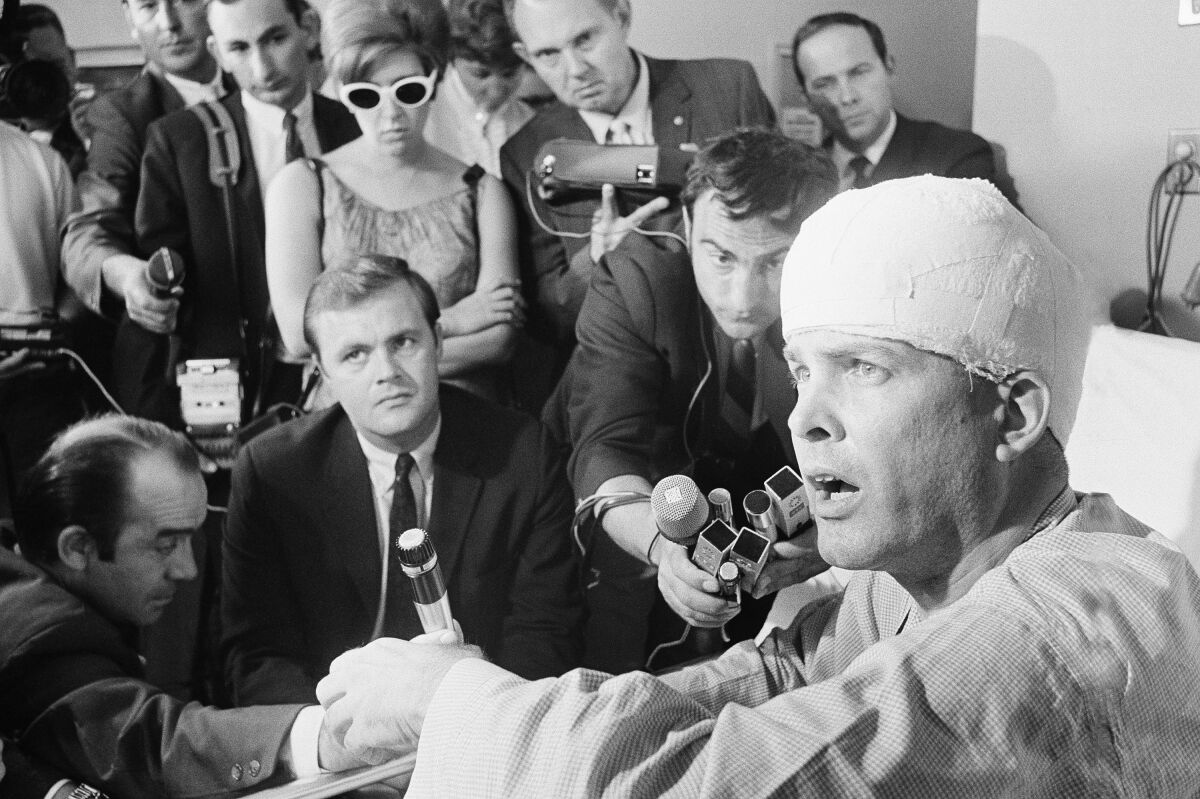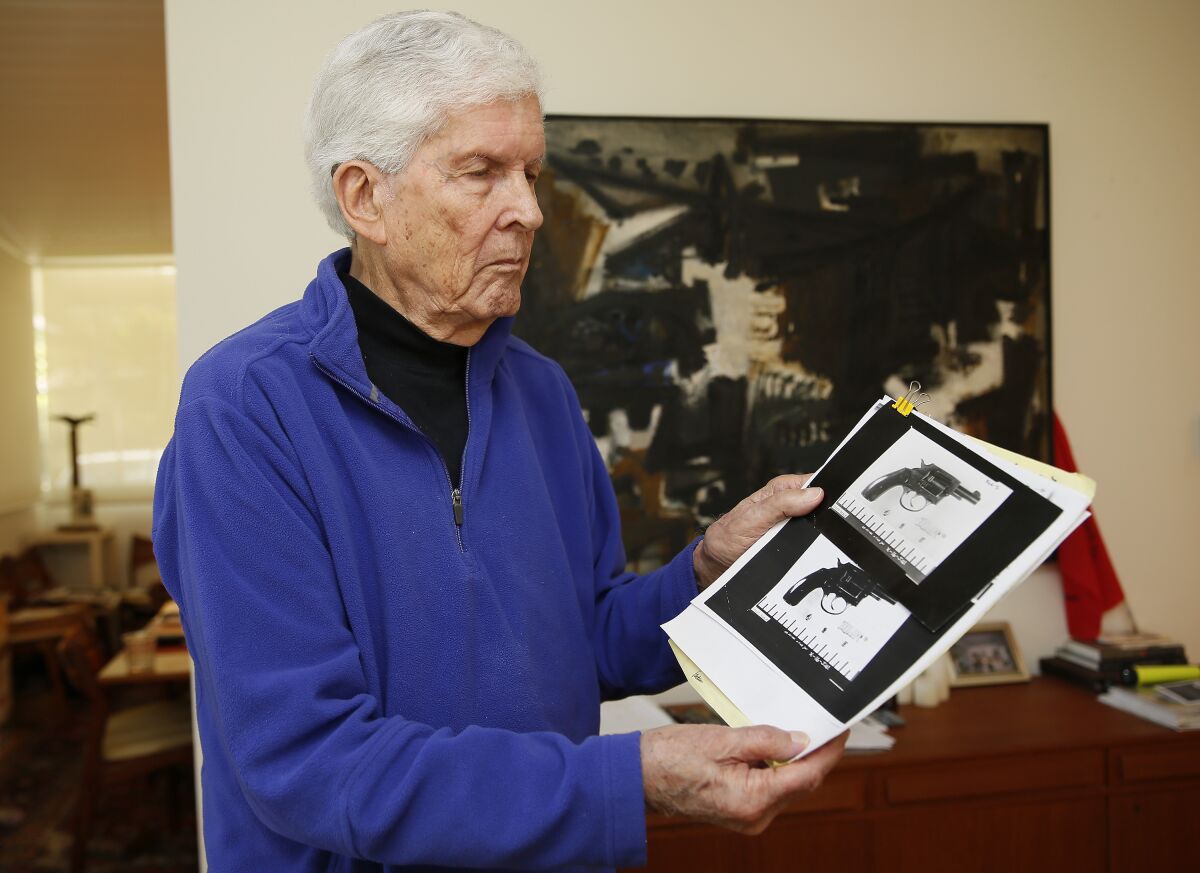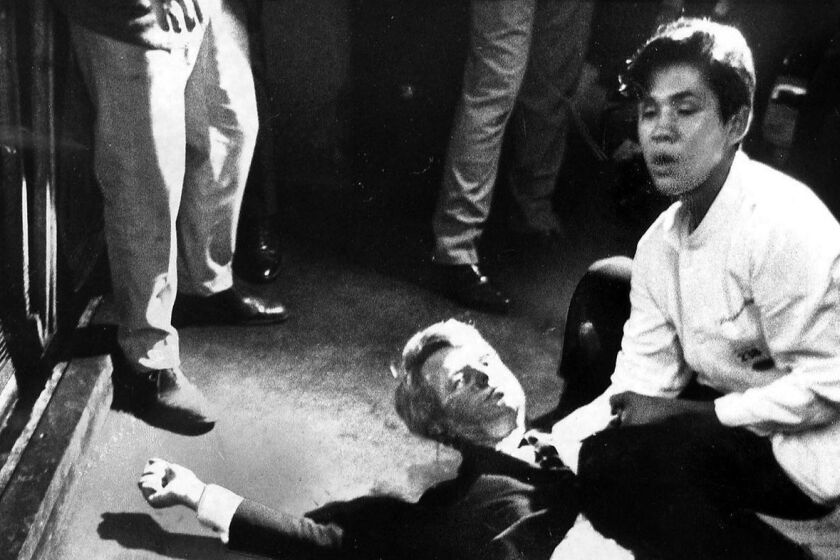Los Angeles police grudgingly reinvestigated the shooting in the 1970s, but reached the same conclusion: Sirhan was the lone gunman.
For his own part, Sirhan was little help. He testified that he had been at a firing range earlier that day, had come to the Ambassador to attend a party and had briefly left the hotel and then returned after deciding he was too drunk to drive. The rest of the night was enveloped in fog, he said.
Sirhan offered contrition at his parole hearings, but always stopped short of taking full blame.
“Sen. Kennedy was the hope of the world and I injured, and I harmed all of them and it pains me to experience that, the knowledge for such a horrible deed, if I did in fact do that,” he testified after being recommended for parole in 2021.
To Schrade, none of it added up. The police investigation felt rushed and sloppy, and key pieces of evidence had been ignored, he said. The closer he looked, the more convinced he was that Sirhan did not shoot Kennedy.
“Yes, he did shoot me. Yes, he shot four other people and aimed at Kennedy,” Schrade told the Washington Post. “The important thing is he did not shoot Robert Kennedy. Why didn’t they go after the second gunman? They knew about him right away. They didn’t want to know who it was. They wanted a quickie.”
In 2016, Schrade testified on Sirhan’s behalf but the parole board, as it had before and would again, denied him parole.
“Sirhan, I’m so sorry this is happening to you,’ Schrade shouted as Sirhan was led away in handcuffs.
When Gov. Gavin Newsom rejected parole for Sirhan in January 2022, marking the 16th time he’d been denied freedom, Schrade was saddened, but hardly surprised.
“He did not shoot Robert Kennedy and should have been released long ago,” he said.
Schrade is survived by a sister, Louise “Weezie” Stone Duff. His wife, Monica Weil, died in 2019.



